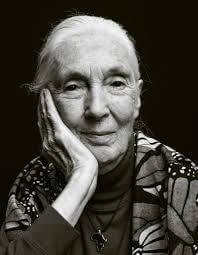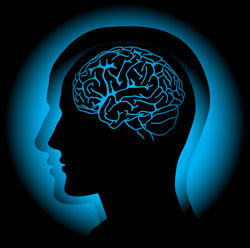Jane Goodall, a British pioneer in primatology whose ground breaking research on chimpanzees profoundly reshaped our understanding of human and animal behavior, died on Oct. 1, 2025, at the age of 91, while on a speaking tour in California, according to The Jane Goodall Institute.
Her death marked the end of an era in conservation and primatology, but her influence endures in classrooms, laboratories, and conservation projects worldwide.
Born in London on Apr. 3, 1934, Goodall showed an early interest in animals. She would watch birds and insects in her garden and dream of living among African wildlife. In a 2023 talk at Dubai’s Sustainable City’s SEE Institute, which The Ethicalist reported on, Goodall recalled stumbling across a copy of Tarzan of the Apes in a second‑hand bookshop, reading it cover to cover and deciding she would one day live with wild animals: “I thought: ‘I will go to Africa, I will live with wild animals, and I will write books about them.’”
When her friends dismissed the idea, telling her that Africa was far away and dangerous, and suggesting she should dream of something she could achieve, her mother offered encouragement. “Jane, if you want to do something like this, you have to work really hard, you have to take advantage of every opportunity, and then, if you don’t give up, hopefully you will find a way,” Goodall recalled during that same talk.
Goodall studied secretarial skills and saved enough to visit a friend’s farm in Kenya. There, she heard about paleoanthropologist Louis Leakey, who believed that studying great apes could shed light on human origins.
In the same 2023 Ethicalist article, she recounted, “After a month, someone said, ‘Jane, if you’re interested in animals, you should meet Dr. Louis Leakey.’ I called him and he invited me to the Natural History Museum where he was the curator … his secretary had suddenly quit – he needed a secretary, and there I was”. Leakey hired her and soon arranged funding for Goodall to travel to what is now Gombe Stream National Park in Tanzania. Around a campfire, she later said Leakey told her she was the person “he’d been looking for four years to go and study our closest relatives”
In July 1960, Goodall established her camp at Gombe. Without formal scientific training, she took an empathetic approach. She observed the chimpanzees quietly, gave them names, and recorded their personalities. After months of patience, she saw chimpanzees fishing for termites with grass stems and using sticks as tools. She also documented chimps hunting and eating meat, according to The Guardian, rewriting the assumption that only humans made tools or ate meat.
Such findings prompted Leakey to remark, in response to skeptics, “Now we must redefine tool, redefine Man, or accept chimpanzees as human,” according to the Jane Goodall Institute. Her discoveries forced scientists to reconsider what traits are uniquely human, and her claim that animals have emotions and personalities was mind-blowing to behaviourist orthodoxy, according to The Guardian.
“While Jane Goodall did excellent science, I think her greatest contribution was introducing the study of primates, especially chimpanzees, to a broad public,” said Dr. Rich Veit, Provost and Senior Vice President for Academic Affairs and Professor of Anthropology at Monmouth University. “Her work was replicated by many other scientists and became a staple of primatological research.”
Although some academics criticised her lack of credentials and her habit of naming chimpanzees, Leakey secured a place for herself at Cambridge University. “Louis Leakey wanted the scientists to take me seriously, so he said: ‘You need a degree, and we don’t have time for an undergraduate degree, so I’ve got you a place in Cambridge University to do a PhD,’” she recalled in the 2023 interview. She completed her doctorate in ethology and continued her research while raising global awareness through books such as “In the Shadow of Man” (1971), as reported in The Guardian.
In 1977, she founded the Jane Goodall Institute (JGI) to support research and conservation, according to the organization. Believing that protecting chimpanzees depended on improving human lives, she championed community-centred conservation. In the 2023 Ethicalist interview, she explained that after a 1986 conference on chimpanzees, she couldn’t sleep after seeing captive conditions and decided to become an activist: “We discussed conditions in captivity and I couldn’t sleep for nights after seeing our closest relatives, social beings, in the cages … I went to that conference as a scientist. I left four days later as an activist.”
She also reasoned that, “if we don’t help these people to find ways of making a living without destroying their environment, we can’t save chimpanzees, forests, or anything else”—a philosophy that underpins the institute’s TACARE model, according to the Smithsonian Magazine. In 1991, she launched Roots & Shoots, a program that encourages young people to undertake environmental and humanitarian projects, according to the Jane Goodall Institute.
Goodall’s humanitarian and scientific contributions earned her worldwide recognition. She was appointed a U.N. Messenger of Peace in 2002, made a Dame Commander of the Order of the British Empire in 2003, and received the U.S. Presidential Medal of Freedom in January 2025. Even in her nineties, she travelled extensively to speak about conservation and climate change, according to the Jane Goodall Institute.
“Jane Goodall helped popularize primatology and anthropology and taught us much about some of our closest primate cousins,” Veit added. “She had a profound impact on conservation work in Africa and around the world.”
For six decades, Goodall has transformed primatology, altered how scientists view animals, and inspired global environmental movements. Her legacy lives on through the Jane Goodall Institute’s research, the millions of young people involved in Roots & Shoots, and the enduring scientific principle that empathy and rigorous observation can coexist. Her life reminds us that curiosity and compassion can drive discoveries that redefine what it means to be human, and that protecting other species and the planet is an ethical imperative.



